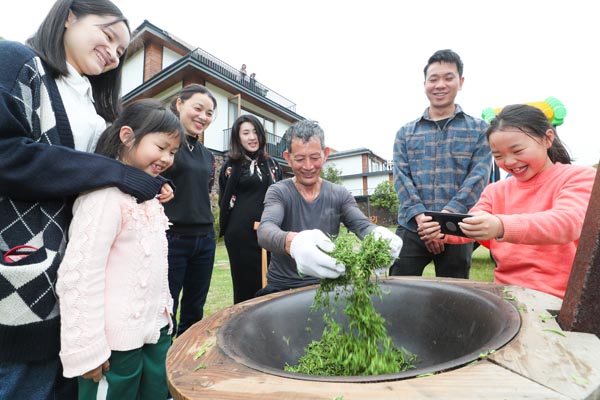New days for homestays


Farmhouses that offer food and board are resuming business nationwide but continue to face challenges as the COVID-19 epidemic subsides in China, Yang Feiyue reports.
Cao Yiyong has finally seen a ray of light after the earlier stages of the COVID-19 outbreak meant his homestay faced a cloudy future.
Tourists are again flocking to his place in northwestern Beijing's Yanqing district.
"We were fully booked during the May Day holiday and have been full during weekends," the 51-year-old says.
About half of the rooms have been receiving guests on workdays, which is better than the same period of last year, Cao adds.
"I guess it has something to do with people staying in for too long, and the suspension of outbound tourism," he says.
Cao's business had come to an abrupt stop from late January until April due to the novel coronavirus outbreak.
He'd lost over 200,000 yuan ($28,135) in income. But he still had to pay employees, and rent and maintenance fees for his two guesthouses, which host over 40 guestrooms in total.
Some visitors are staying longer than they did before, about two to four days.
"Schools haven't fully opened, and we offer fast Wi-Fi for children to continue online courses while the adults enjoy leisure," Cao says.
Most of Yanqing's homestays resumed operations in May, with bookings now exceeding 90 percent during weekends, says Cao, who's also a senior official with the district's homestay association.
The increase of small group tours due to the current disease-prevention measures has also contributed to the growth in business, he adds.
Bookings for Beijing's homestays on the home-sharing platform Xiaozhu surged fivefold in two days after the capital relaxed its infection-prevention response on April 30. About 380 rural homestays in Beijing reported 90 percent occupancy during the May Day holiday.

































